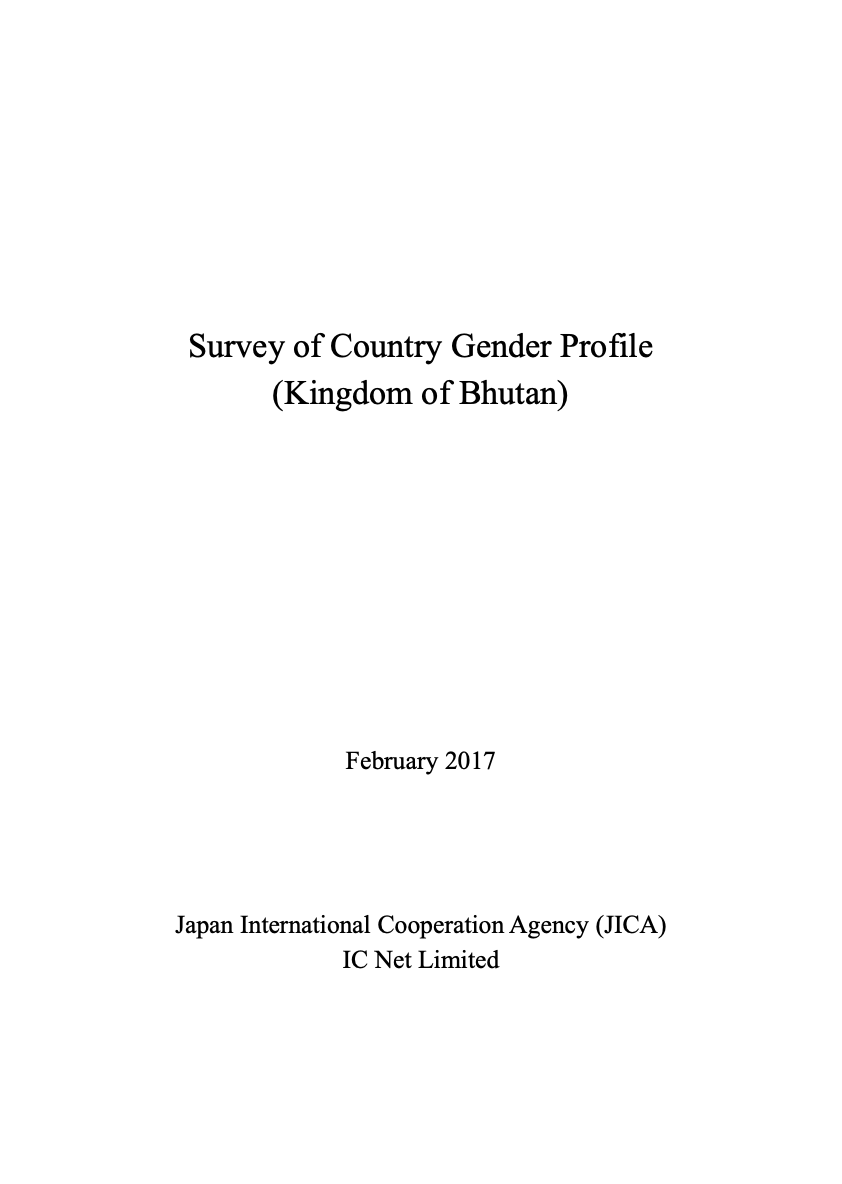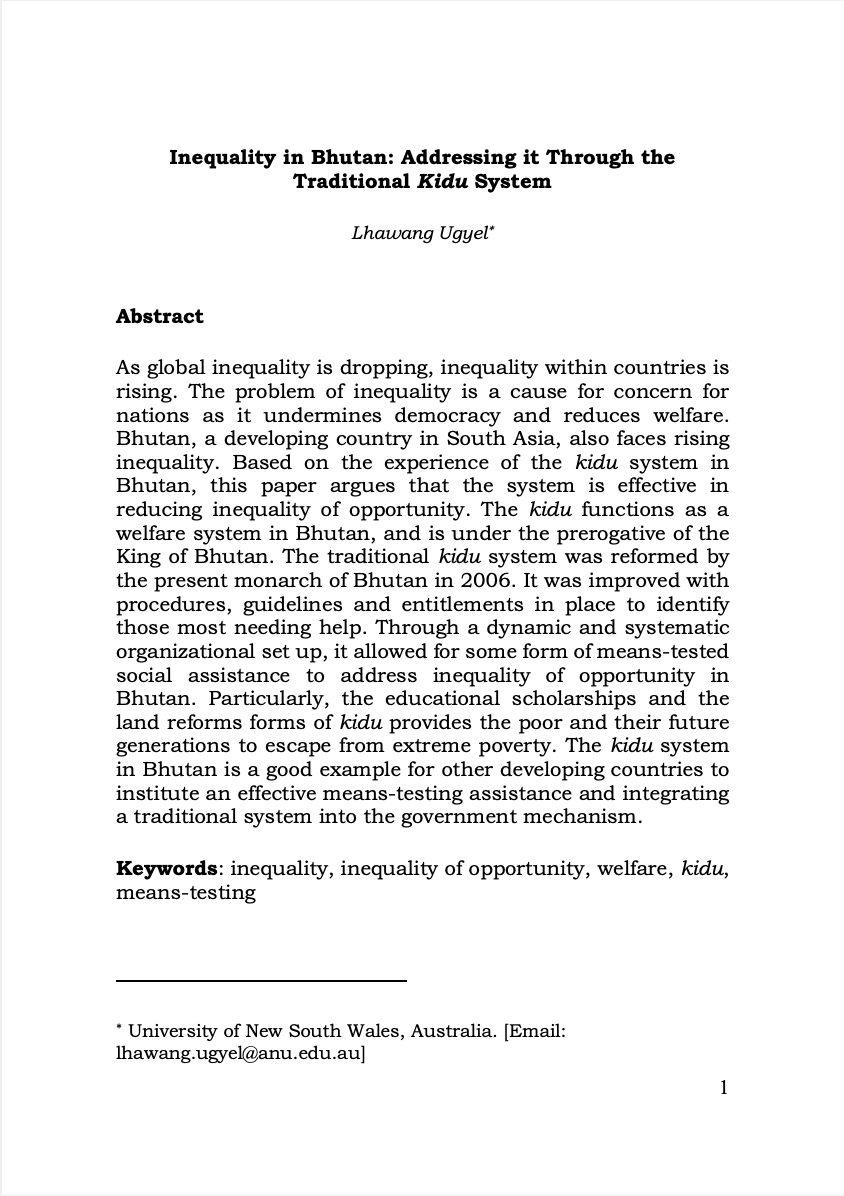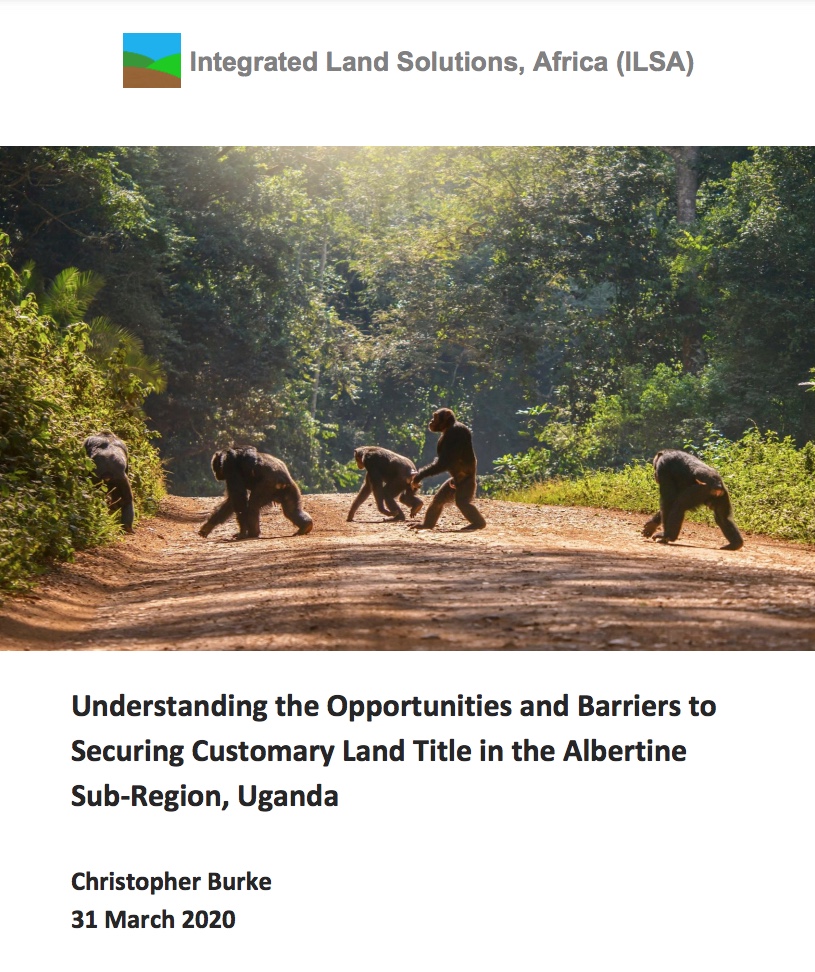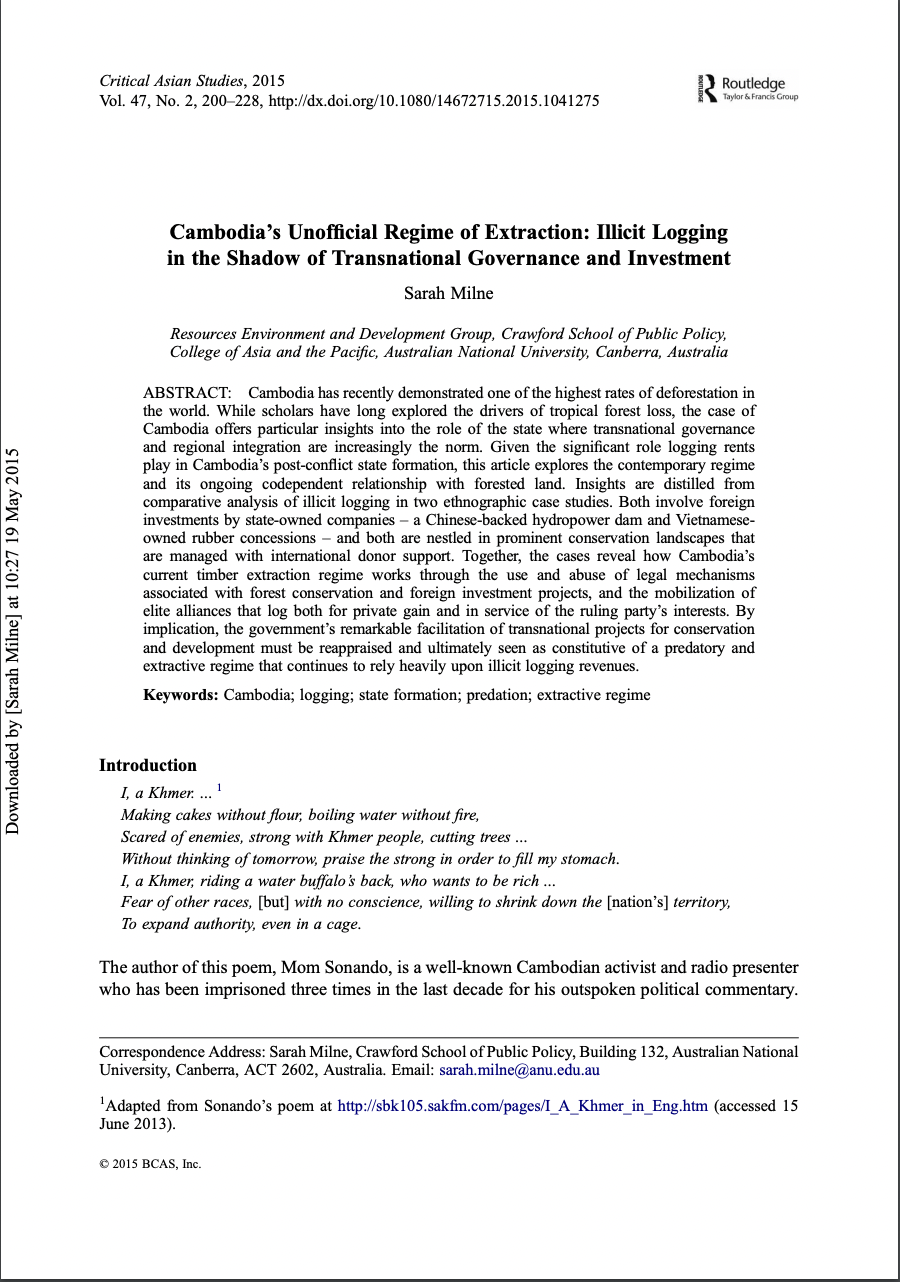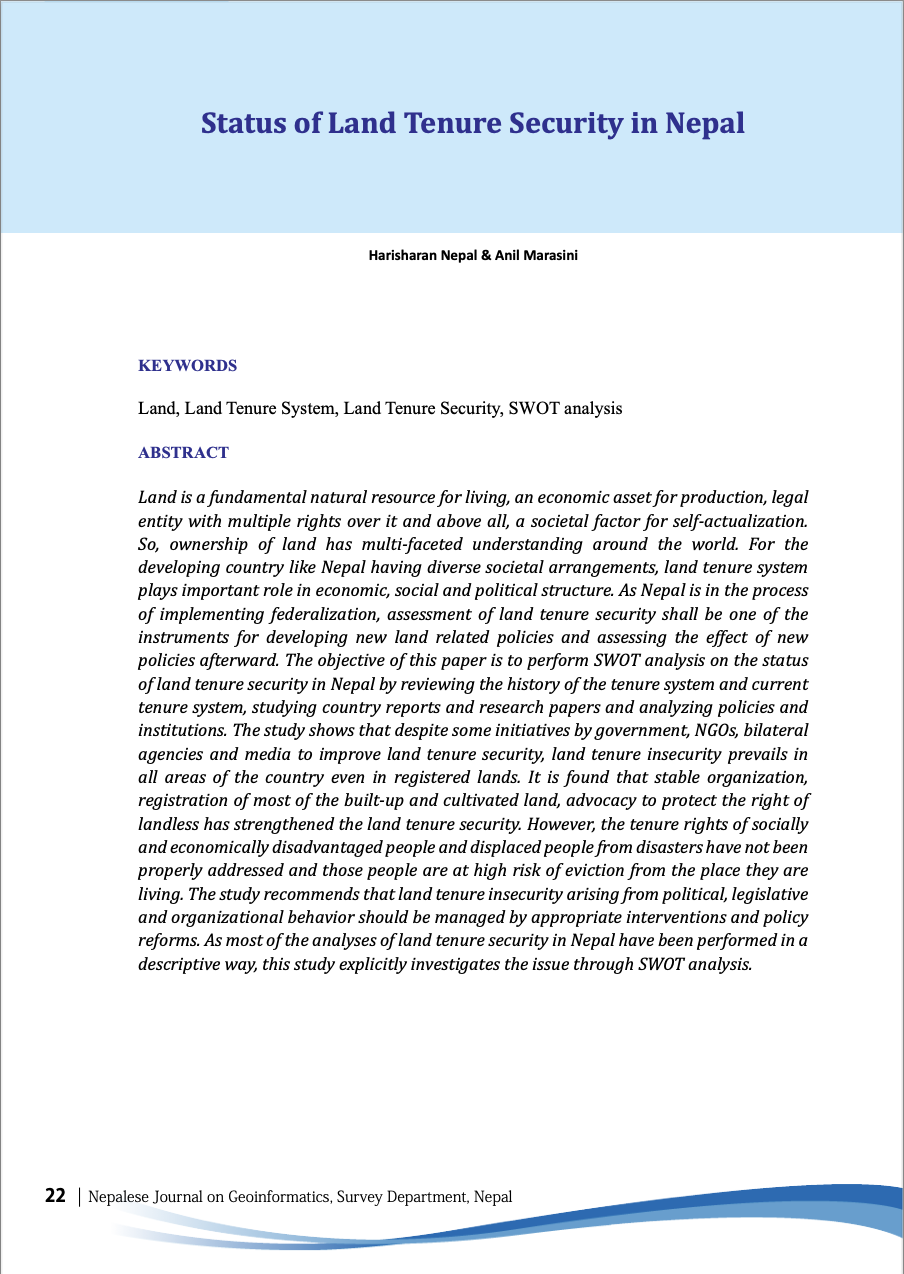Survey of Country Gender Profile (Kingdom of Bhutan)
International aid communities have recognized women’s participation in development and the improvement of women’s status in the developing countries as a key issue since the 1960s, and the concept of “Women in Development (WID)” has been emphasised as a development agenda in the 1970s. In the 1980s, with the newly proposed concept of “Gender and Development (GAD)”, an effort for “gender mainstreaming” has been regarded as an effective mean for firmly practicing the GAD approach in the international community.

